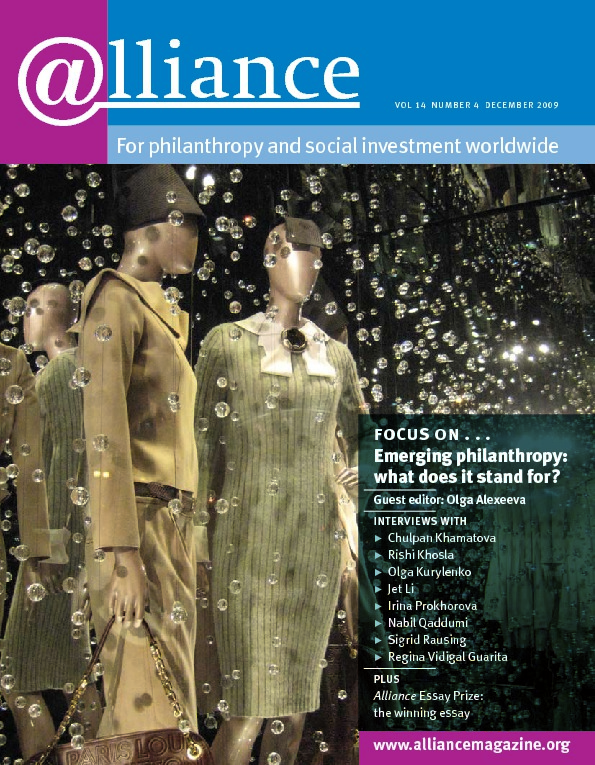The Sigrid Rausing Trust was founded in 1995 to promote international human rights. Why is this such a priority, Alliance asked founder Sigrid Rausing, and shouldn’t local donors be supporting human rights in their own countries?
Why are you involved in grantmaking to support social justice and human rights?
Because I believe in the idea of civil society playing an important part in holding governments to account. In open societies, NGOs have in some respects taken over the role of the free press – Human Rights Watch and other NGOs essentially do the kind of in-depth investigative reporting that most newspapers are now doing less of. We have seen recently how quickly democracies can abandon clear principles, like the ban on torture in the Geneva Convention. The resurgence of torture by Americans, and probably its toleration by the British and others, in the context of national security and the war on terror, was exposed by human rights institutions before the press picked up the story. Without civil society, human rights language and legislation would have been hijacked by the UN human rights bodies, with their narrow remits and frequently anti-western bias. The area of transitional justice probably wouldn’t exist. Without countless hours of advocacy and lobbying by women’s rights groups, women’s rights wouldn’t be part of the UN remit. If we had left it to the UN, the Palestinian refugee problem would be blamed entirely on Israel, and the discrimination against Palestinian refugees in the Arab world would not be part of the dialogue.
Do you think it’s important for donors in emerging markets to support these areas themselves rather than leaving it to western private foundations, democracy programmes, etc?
It’s a mistake to club all emerging markets together in this respect. It’s impossible to support human rights and democracy in Burma or North Korea; difficult and dangerous in China, and to some extent in Russia; and easier in India or Brazil. The notion that human rights is a western concern is an argument often used in China and in authoritarian Muslim states. But this is in itself an expression of a profoundly western concept, cultural relativism. We must remember, too, that culture is not static. The culture of China, after all, changed dramatically after the revolution. Human rights for all, as expressed in the Universal Declaration and its successive additions, is a progressive ideal which all countries active in the UN ought to strive for.
What do you feel about the idea of ‘private social responsibility’? Should there be a relationship between family values and the values espoused in your philanthropy?
Well, I believe in fair trade certification and consumer responsibility, which is an area we have been active in, and I have seen how the language of corporate responsibility can translate into positive changes on the ground. I believe passionately in human solidarity and equality – a belief which, hopefully, helps me to act like a decent human being – and I try to transmit these values to the next generation.
I am, however, very aware that different cultures have genuinely different moral codes and beliefs about social responsibility. Not so long ago decent people thought nothing of disparaging homosexuals, in between anti-semitic or racist jokes. Gradually those jokes came to be seen as more extreme and right-wing, until the forces of political correctness more or less ended them, despite some shrill opposition.
I will never forget a document I read in the Wiener Library, written by a German girl in the 1930s. This girl had a Jewish friend, but her Aryan friends and teachers explained the crimes of the Jewish people to her. Finally she understood. The story ended when she picked up a stone, and threw it at her friend. The matter-of-fact belief of the girl that what she had done was the decent and proper thing is chilling.
The Universal Declaration of Human Rights was of course in large degree a result of the Holocaust. If it had existed before the war, and the German girl had been brought up to respect it, she would have understood that her conduct contradicted the very first article: ‘All human beings are born free and equal in dignity and rights. They are endowed with reason and conscience and should act toward one another in a spirit of brotherhood.’
Helping the poor is important; ‘development’, the systematic attempt to help the poor even more so. But human rights is a genuinely progressive philosophy which provides an essential check on repressive state power.
For more information
http://www.sigrid-rausing-trust.org






Comments (0)